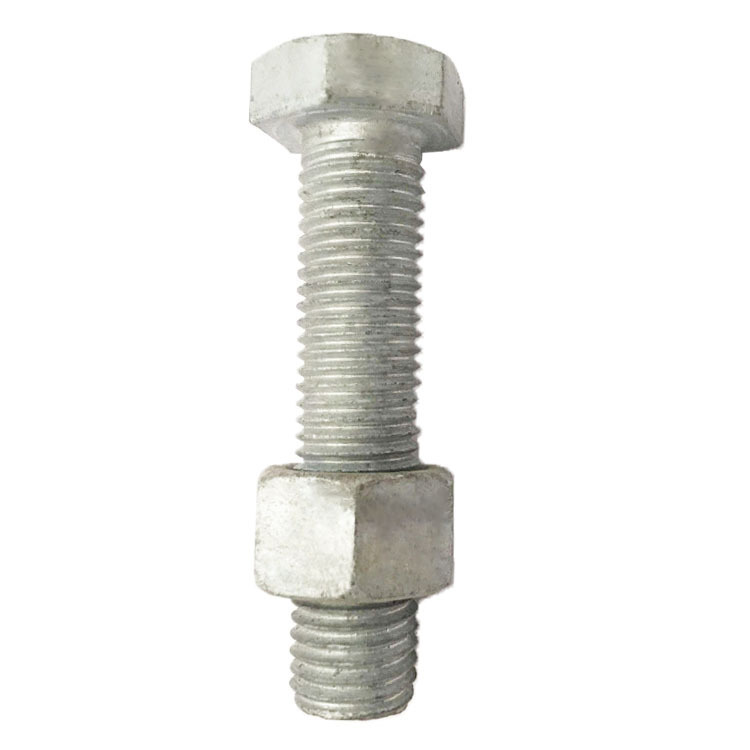

precision flat washers
Nov . 13, 2024 22:13 Back to list
precision flat washers
Understanding Precision Flat Washers Key Components for Mechanical Assemblies
In the world of mechanical assembly and engineering, precision components play a crucial role in ensuring the reliability and functionality of various applications. Among these components, precision flat washers stand out as essential elements that contribute significantly to the overall performance of a mechanical system. This article delves into the characteristics, applications, manufacturing processes, and benefits of precision flat washers, shedding light on their importance in various industries.
What are Precision Flat Washers?
Precision flat washers are thin, disk-shaped components made from various materials, including metal, plastic, and rubber. They have a central hole that fits over a screw, bolt, or nut, and they are primarily used to distribute the load of the fastener evenly across the surface. This distribution helps to prevent damage or deformation to the mating surfaces and enhances the overall stability of the assembly.
The term precision indicates that these washers meet stringent manufacturing standards, ensuring consistency in thickness, diameter, and surface finish. Such precision is crucial in applications where component performance is critical, such as aerospace, automotive, and electronics industries.
Applications of Precision Flat Washers
Precision flat washers are versatile components found in various applications across multiple industries. Here are some common uses
1. Automotive Industry In automobiles, precision flat washers are utilized in engine assembly, suspension systems, and bodywork. They help maintain uniform pressure and prevent wear between components, contributing to vehicle safety and performance.
2. Aerospace In the aerospace sector, where reliability is paramount, precision flat washers are used in connecting parts of aircraft, helping manage vibration and thermal expansion. The strict certification requirements for aerospace components necessitate the use of precision washers to ensure quality.
3. Electronics In electronic devices, these washers help create a stable connection for components that may experience thermal cycling, reducing the risk of failure in electronic assemblies.
4. Construction and Heavy Machinery Precision flat washers are used in heavy machinery and structural assemblies, where they play a role in load distribution and preventing loosening of connections due to vibration.
Manufacturing Processes
precision flat washers

The manufacturing of precision flat washers involves several processes to ensure that the final product meets exact specifications
1. Material Selection Depending on the application, materials like stainless steel, aluminum, and nylon are chosen for their mechanical properties, corrosion resistance, and weight.
2. Blanking and Stamping Using processes like blanking and stamping, sheets of material are cut into circular shapes that form the washers. These processes require high precision to ensure uniform dimensions.
3. Finishing After the basic shape is formed, finishing processes such as grinding or polishing are performed to achieve the desired surface quality. This can enhance the washer's performance by reducing friction and improving the overall aesthetic.
4. Quality Control Given the critical role of these components, rigorous quality control measures are implemented to ensure that each washer meets the required specifications. This may include dimensional checks, hardness tests, and surface finish evaluations.
Benefits of Using Precision Flat Washers
1. Load Distribution By distributing the load over a larger area, flat washers reduce the risk of damaging surfaces and extend the lifespan of the components they support.
2. Vibration Mitigation Flat washers help dampen vibrations, preventing loosening of fasteners and ensuring the integrity of the assembly.
3. Corrosion Resistance Many precision flat washers are designed with corrosion-resistant coatings, making them suitable for use in harsh environments.
4. Versatility Available in various sizes, materials, and thicknesses, precision flat washers can be tailored to meet the specific needs of a wide range of applications.
Conclusion
In conclusion, precision flat washers are an integral part of many mechanical assemblies, providing essential benefits such as load distribution, vibration mitigation, and enhanced durability. Their manufacturing involves sophisticated processes to ensure high quality and consistency, which are critical to the performance and reliability of various applications across diverse industries. As technology continues to advance, the demand for precision components will grow, further underscoring the importance of precision flat washers in modern engineering and manufacturing. Understanding their characteristics, applications, and manufacturing processes can help engineers and manufacturers make informed decisions when selecting the right components for their specific needs.
Latest news
-
High-Strength Hot Dip Galvanized Bolts - Hebei Longze | Corrosion Resistance, Customization
NewsJul.30,2025
-
Hot Dip Galvanized Bolts-Hebei Longze|Corrosion Resistance&High Strength
NewsJul.30,2025
-
High-Strength Hot-Dip Galvanized Bolts-Hebei Longze|Corrosion Resistance&High Strength
NewsJul.30,2025
-
Hot Dip Galvanized Bolts-Hebei Longze|Corrosion Resistance&High Strength
NewsJul.30,2025
-
Hot Dip Galvanized Bolts - Hebei Longze | Corrosion Resistance, High Strength
NewsJul.30,2025
-
High-Strength Hot Dip Galvanized Bolts-Hebei Longze|Corrosion Resistance, Grade 8.8
NewsJul.30,2025

